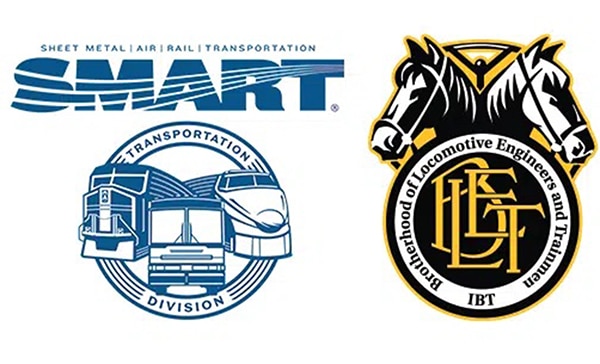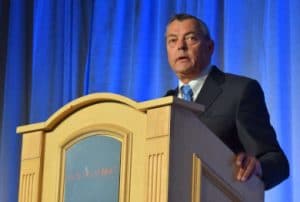JACKSONVILLE, Fla. (Aug. 21, 2024) — SMART Transportation Division negotiators have reached a tentative agreement with CSX that would provide raises and improvements in paid vacation and health care if ratified by members.
The new five-year agreement will be put in front of TD members working in CSX’s Northern Mid-Atlantic District for a vote. SMART-TD’s GO 049 encompasses the former Baltimore & Ohio (B&O), former Conrail and former Pan Am and is led by General Chairperson Rick Lee.
“It’s refreshing to see that we are finally advancing in transparency and fruitful negotiations with CSX to address the issues at hand. Class I rail carriers traditionally stick together, play games with us and basically try to wait us out to uncertainty before offering any beneficial agreement changes that we seek, if they offer anything at all,” GC Lee said. “However, in order to get ahead of the potential situation like we went through in the 2020 rounds of bargaining that led to a PEB in 2022, SMART-TD GO 049 knew it was in the best interest of our members to avoid this potential circus in 2025 and engaged in early discussions prior to the actual contract moratorium deadline to test the waters.
“To that effect, as other discussions on national bargaining items quickly broke down, we were pleased to find that CSX CEO Joe Hinrichs and his team at CSX were willing to step up to the plate and not play games.
“Based on our advanced focus and collaborative efforts in an attempt to not delay pay raises and enhance benefits to those we represent, the tentative agreement (TA) reached with CSX today will not only allow our members to enjoy increases in their paychecks and significant AFHT meal reimbursements, but they will also enjoy distinct improvements to their quality of life with guaranteed vacation for new hires and accelerated vacation accrual for others with more seniority. Additionally, we were able to provide H&W benefit enhancements that our members have been seeking for many years.
“All in all, I’m very proud of the work of my team here at GO 049 has done to secure this agreement. If the TA is ratified, we will be able to avoid the projected multiple years of uncertainty and frustration, which falls into the ‘plus’ column alone.”
SMART-TD will release details about the tentative agreement to members as the choice is considered whether to ratify the tentative agreement. Terms include average wage increases of 3.5% per year over five years. Other details about improvements in paid vacation and health care will be provided in the near future.
GC Lee and his negotiating team for GO 049 was assisted by TD Vice President Jamie Modesitt in the negotiations.
The announcement of the tentative agreement comes months before the current National Railroad Agreement that took effect in late 2022 becomes amendable for the large U.S. rail carriers.
“I want to recognize the labor leaders who have stepped up to serve the best interests of their members and our employees in getting these historic deals done well in advance of their contracts even coming open for negotiation,” said Joe Hinrichs, president and chief executive officer. “CSX and our labor partners understand our employees don’t want to wait several years for their next pay raise. We thank the organizations for working with us to demonstrate that our ONE CSX culture and values aren’t just words, they are our collective path forward to an improved experience for both our employees and customers. We have also reached out to our other labor partners and look forward to promptly reaching agreements for all CSX union employees patterned on these same terms.”
CSX also announced on the same day that it reached tentative agreements with the Transportation Communications Union (TCU), the Brotherhood of Railway Carmen (BRC).
###
SMART Transportation Division is the biggest rail union in the United States comprised of approximately 125,000 active and retired members who work in a variety of different crafts in the transportation industry. These crafts include employees on every Class I railroad, Amtrak, many shortline railroads, bus and mass transit employees and airport personnel. Media contact: news_TD@smart-union.org.



